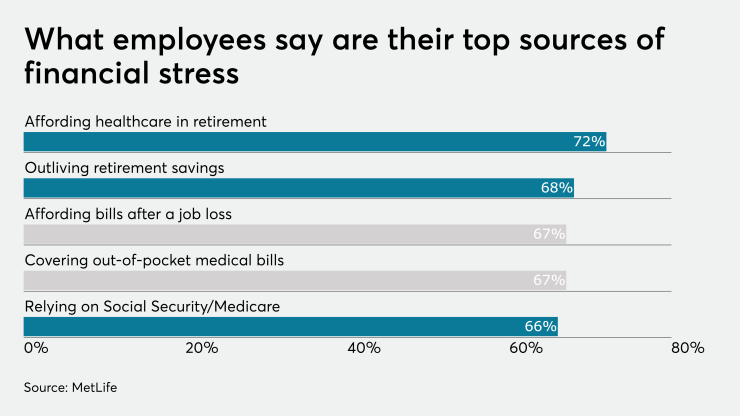Welcome to Retirement Scan, our daily roundup of retirement news .
Workers who experience a financial setback when they are approaching retirement are advised to face the situation, stick to a budget and minimize their spending to recover from the crisis, according to this article in Kiplinger. They are also advised to develop a plan to reduce their debt, take on a side hustle for extra income and develop a claiming strategy that will maximize their Social Security benefits. Those who have a home equity loan may also consider a reverse mortgage to boost income in retirement.
Investing with a social purpose is becoming increasingly popular as more employers opt to offer ESG funds in their 401(k) plans, according to this article in The New York Times. “We have the expertise to understand that these new business models have the potential to be climate solutions and to grow the economy at the same time,” an employer says. “With that perspective, it makes sense for us to incorporate ESG investing for our retirement plan.”
Employees are unlikely to retire wealthy if they only guess at the amount of money they need to save, according to this article in Motley Fool. They also won't end up with a considerable nest egg if they don't contribute regularly to their retirement accounts. Dipping into their savings could also prevent them from retiring rich, as withdrawals will be subject to a 10% early penalty and income taxes if the money is withdrawn from a tax-deferred account.
Retirees in Manhattan, New York; San Francisco, California; and Boston, Massachusetts can expect their $1 million in savings to last less than 15 years, according to data from personal finance website SmartAsset in this CNBC article. The same amount of savings could last for nearly 25 years in Phoenix, Arizona; Houston, Texas; and Columbus, Ohio. The ranking is based on date from the Bureau of Labor Statistics and the Council for Community and Economic Research.
New graduates are better off saving money in a retirement account while paying their student loans as soon as they start earning income rather than deferring the contributions until they totally settle the debt, an expert in the The Los Angeles Times writes. "The longer you wait to start, the harder it is to catch up, and you’ll have missed all the tax breaks, company matches and tax-deferred compounding you could have earned."






